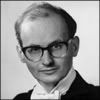Socialism: Any economic order without dependency and exploitation of individuals.
Communism: A society of economic equals, without rich or poor people.
Capitalism: An economic order where a small elite controls production and services and the average individual depends upon getting a job from these elites, thus getting into the danger of getting exploited for profit.
Kman wrote: The government running the whole economy.
Thats a planned economy. A planned economy can be a perfect capitalism, as for example nazi germany has proven. It is then simply a guaranteed monopoly or ogliopoly for the previously existing producers.
Any economy is either a planned economy or a market economy, or a mixture of both.
Planned economies existed, for example, in nazi germany, and in britain between the world wars, as well as of course in the sowjet union and later its allies. None of these have been socalisms or communisms according to the above definition. Only the sovjet union even wanted to be a socialism, but not a communism.
The strength of planned economies is that complete employment is easily reachable and that certain "global" goals, such as preparing the military for a world war in nazi germany, are more efficiently reachable. On the other hand, general consumption has, in all historical examples, always stayed very low in all planned economies, though there is no logical reason why it must be that way. Only the sovjet union tried to be a socialism, but it completely failed, as it wasnt even a democracy to start with and thus had no freedom of the individual.
The disadvantage is that it doesnt work. With every planned economy, there is a black market that needs to exist to compensate for all the miscalculations of the economic planning instance. Thus pure planned economies on large scales do not exist.
Also, in the long run, planned economies have shown a lack of innovation and progress.
Basically planned economies suffer from the same error as monopolys and ogliopolys - there is just nothing that would urge the economy to stay efficient, thus the performance depends completely upon the whims of the economic leadership, which may for example decide to overinvest, to underinvest. However, some behaviors typical for monopolys, such as destroying part of the production in order to maximize profits, arent typical for planned economies.
Planned economies actually work quite well on small scales and easy tasks. Especially, every individual by themselves form a planned economy, as does every other economic unit (families, companies). So the forming entity of every market economy is always a planned economy in itself.
One of the main misconceptions about planned economies was also that the designers didnt realize any planned economies have to work as part of a market economy, because the world economy is always a market economy (unless we would have a world government). Thus the inefficient planned economies always ended up competing directly with the more efficient market economies.
It has to be stressed that market economies are not the same as capitalism. There is no inherent mechanism of dependency in a market economy, thus a market economy may be the base for a socialism.
All in all planned economies can be viewed as a failure that shouldnt be considered except in special cases when the production in question is simple, such as with agriculture.
One core element should be mentioned as well - planned economies do not actually need money, while complex market economies without money are next to impossible.
There's class warfare, all right, but it's my class, the rich class, that's making war, and we're winning. - Warren Buffett



















 - By wat0n
- By wat0n - By Potemkin
- By Potemkin